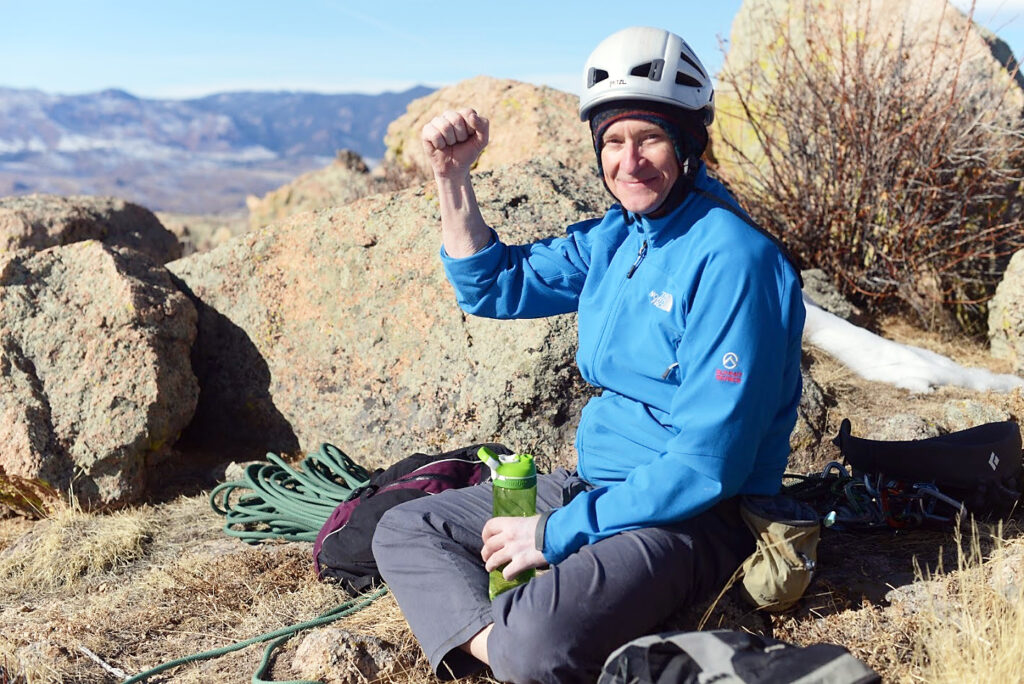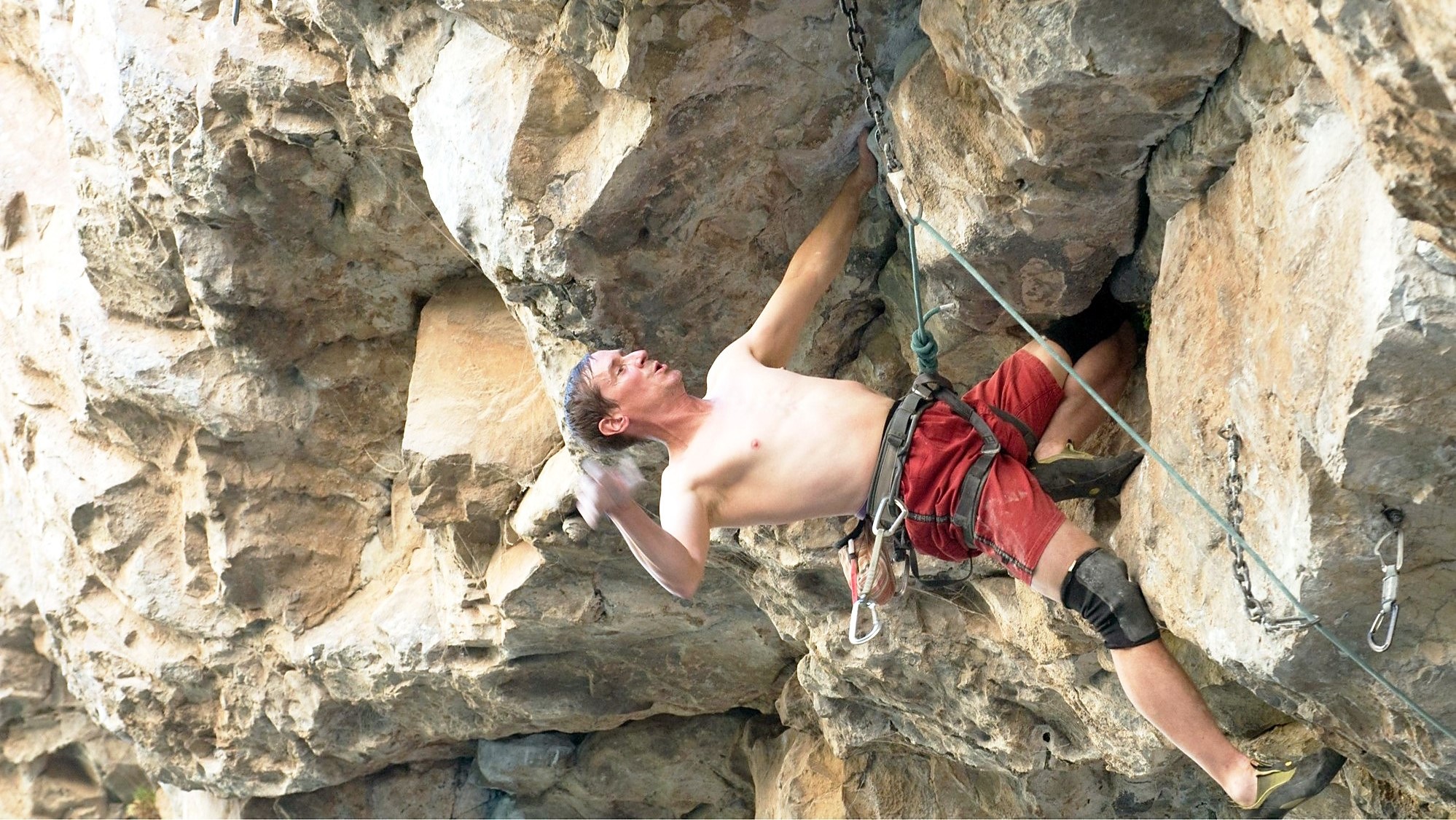Dr. Don McGrath, a rock climber and climbing coach with over 30 years of experience, and the co-author of Vertical Mind: Psychological Approaches for Optimal Rock Climbing explains how fear, besides gravity, affects rock climbing!
In rock climbing, we need physical strength to overcome the forces that gravity exerts on our bodies as we climb. We push and pull upward against gravity’s constant force. The stronger our arms, legs, and core, the better we can overcome the gravitational pull. If it is gravity that we are working against physically, what force are we working against mentally? It certainly isn’t gravity. The force that we work against with our mental strength is fear. Fear, like gravity, is ever-present so we fight it constantly.
Whereas gravity exerts its force in one direction, fear comes in many forms: fear of falling, fear of pain, and fear of failure. More importantly, these fears are not as simple to understand as gravity.
In addition, the term ‘fear’ is being used to include nervousness, anxiety, panic, desperation, terror, etc. Especially in the more mild forms, we may not even be conscious of their effects. For example, we say we fell because our forearms got tired or weren’t strong enough.
But, the real problem may have been fear causing us to hesitate or overgrip the rock. Similarly, we may decide to repeat a rock climbing route, rather than face a new challenge. Why? Perhaps, we are afraid we might perform poorly in front of other climbers. Therefore, fear deserves some attention so that we can understand it and learn to manage it to our advantage.
In physical training, we train our muscles and nervous system so that we can successfully overcome the force of gravity. We strengthen our fingers, arms, legs, and core muscles to develop finger strength, delay forearm tiredness, and maximize arm pulling power. We practice technique to learn movements and execute them smoothly. To achieve physical gains and overcome gravity’s force, we employ a wide variety of training methods. Therefore, overcoming the more complex forces of fear requires the innovative and varied methods of mental training.

Train the brain
The climbers should spend more of their attention on training their brains
Here are some of the top tips for training the mind to attain the best results:
Create a pre-climb ritual to create an optimal mindset when you start a climb: Most climbers experience some sort of pre-climb anxiety before they get on a route that will challenge them physically and mentally. The severity of this anxiety can range from very mild to paralysing. The pre-climb anxiety in most cases is due to fear of falling and fear of failure, and the severity of the anxiety is related to the experience the climber has with falling and failure. The more experience with falling, the lower the anxiety around falling is. The same is true for failure.
Move towards a fear rather than run away from it in order to overcome it: Fear of Falling provides a great example for this tip. We all fear falling to one degree or another. It is instinctual. Fear of falling can be rational or irrational. There is a good reason that we fear falling. We can get hurt! The trick is determining when the fear is irrational and proceeding to climb safely. Once you know a fall scenario is safe, falling is typically uneventful. The issue is that fear of falling in safe situations can cause you to fall when you don’t necessarily need to. You can over grip, get tunnel vision, and fall. It is important to build an arsenal of uneventful falls to condition your mind and be able to relax in situations where there is fall potential. This is called adaptation.
Avoid mindless warm-up routines and instead use your warm-up to build valuable technique skills: Most climbers climb a few routes to warm-up prior to getting on something that challenges them. This prepares them physically for the challenge. Often, this turns into a mindless repeating of climbs.




